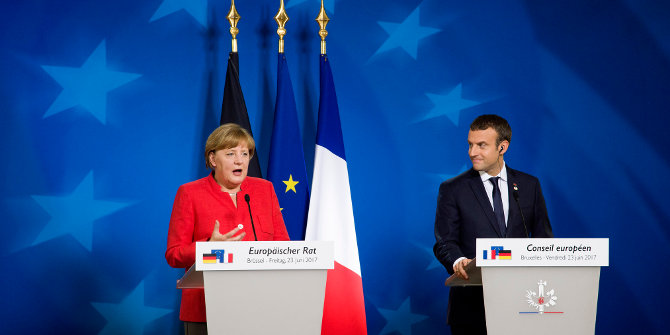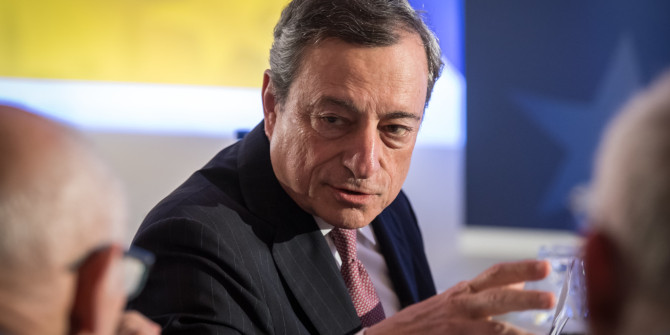Civil society organisations are well placed to help local communities play a role in development projects across the Black Sea region. Yet as Alexandru Damian explains, this will require a more sustainable model for funding and protecting the work of civil society actors.
Many of the international donors that fund projects in the Black Sea region have emphasised a model of locally led development in which “local actors should build their own agendas, develop solutions, and bring their capacity, leadership, and resources to make those solutions a reality”. While this approach has the potential to increase local ownership, it also implies that more is expected from local actors whose capabilities are already stretched thin by numerous overlapping challenges.
One of the biggest challenges is that the funding system for civil society organisations in the region is increasingly unsustainable, with most organisations needing to compromise on key aspects of their operations. There is a high level of dependency on short-to-medium term grants, which creates important vulnerabilities such as a significant administrative burden to meet donors’ requirements, low capacity to diversify resources and a lack of core funding.
The result is financial unpredictability and obstacles to civil society organisations following a development strategy. This also affects on-going operations as civil society organisations remain financially vulnerable, especially during gap periods between the few larger projects that they implement. They often lack the resources to maintain their core team and invest in staff development and wellbeing.
For all of these reasons, donors will need to re-evaluate the current paradigm of providing almost exclusively short-term small grants, as this practice inhibits civil society organisations from following longer term strategies. This impacts the sector’s capacity to work together, as the scarcity of resources is putting civil society organisations in a highly competitive environment that hinders their collaboration outside of specific projects or consortium-led activities.
Investing in people
Civil society organisations consider staff wellbeing to be a critical aspect of their operations. However, this component has typically been informal and is usually coordinated by each organisation without meaningful investment by donors or any dedicated lines of funding. Donors and civil society organisations have generally directed their efforts toward more basic capacity building. A paradigm shift is needed for civil society organisations to focus more on staff wellbeing and support.
This need has been heightened by both the COVID-19 pandemic and the war in Ukraine, as civil society organisations, especially in eastern Europe, have been leading the support provided to Ukrainian refugees and collecting funding on behalf of those still in the country.
Over nine billion US dollars were sent to Ukraine for humanitarian assistance in the first year of the conflict, much of which relied on local civic actors during the implementation process. Despite this crucial role, burnout, anxiety and depression are increasing among staff at civil society organisations, with few solutions on the horizon due to the scarcity of their resources and the lack of a corresponding funding component from donors.
Better communication
There is a similar lack of attention being paid to the communication strategies of civil society organisations. Despite the urgent need for their voices to be heard, particularly in light of the hostile environment and false narratives many of them face within their home countries, very few civil society organisations are working to build real communication strategies that can effectively highlight their work. Communication is only perceived to be a mandatory component in relation to specific projects. Few civil society organisations are using monitoring and evaluation data to assess their impact.
These shortcomings offer a partial explanation for why civil society organisations give the impression of punching below their weight and why they appear ill-equipped to counter the false narratives and accusations they face. What also stands out is that some civil society organisations prefer to communicate around the outcomes of specific projects rather than build their own public image as they are aware of the negative perception of the sector among certain groups within society. This is a vicious circle that could have a damaging impact on the sector over time.
Political pressure
Civil society organisations also face a range of external challenges. Many civil society organisations have cited concerns about being targeted by their national illiberal governments. A recent assessment of the sustainability of civil society organisations led by the Romanian Centre for European Policies found that eight out of ten organisations from the greater Black Sea region consider “political pressure and hostile public policies and behaviours adopted by their national governments” to be the most important risk the sector will face in 2023-24.
Political interference is growing, especially in dysfunctional democracies. This adds to recurrent pressures such as bureaucracy, censorship and intimidation. This problem is particularly visible in non-EU countries, such as Georgia, Armenia and Azerbaijan, but it also affects EU member states, including Bulgaria, Hungary and Romania, where legislative changes and smear campaigns have put additional pressure on the sector.
The intimidation of civil society organisations is on the rise, with political parties and state-funded media ramping up pressure on their activities. Disinformation against the sector is having major consequences, with civil society organisations often accused of destabilising countries with the support of foreign actors. These campaigns are linked to the efforts of incumbent governments to hold onto power in upcoming elections across the region.
Governments have also aimed to create a cumbersome regulatory environment and make access to funding more difficult for civil society organisations. This is common in many non-EU member states, such as Georgia, but it has also been imported into EU member states such as Hungary. The aim is to burden civil society organisations to the extent that they are unable to implement their projects or act as watchdogs.
The way forward
Civil society organisations have the potential to be a key component in plans for locally led development across the Black Sea region. Civil society actors are well placed to foster social cohesion, co-design projects and facilitate the involvement of local communities in development.
Yet for this to become a reality, it will be necessary to address the broad unsustainability of the civil society sector. Larger platform organisations should also focus on facilitating cross-regional cooperation to enhance knowledge sharing. This could enhance the sustainability of local activities by building cross-regional networks and increasing the opportunities for civil society actors to access longer-term funding.
For more information, see the author’s accompanying paper published by the Romanian Centre for European Policies (co-authored with Oana Ganea, Ruxandra Popescu and Alexandru Dănescu)
Note: This article gives the views of the author, not the position of EUROPP – European Politics and Policy or the London School of Economics. Featured image credit: Lukas Bischoff Photograph/Shutterstock.com





